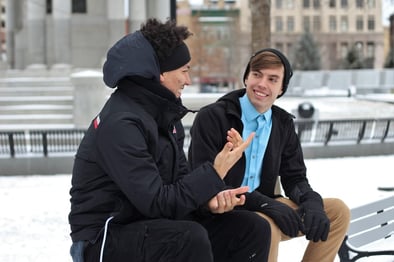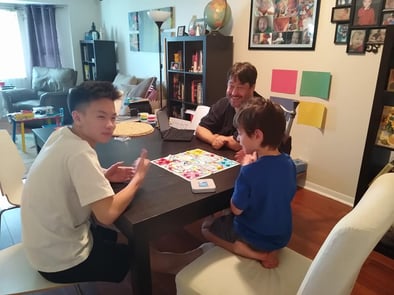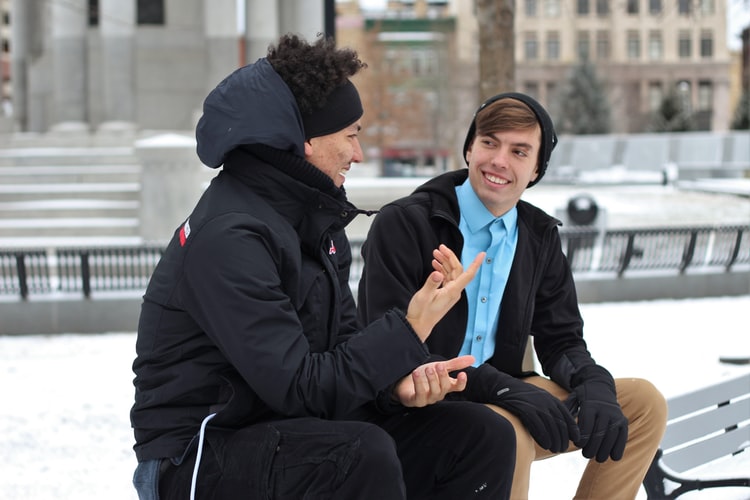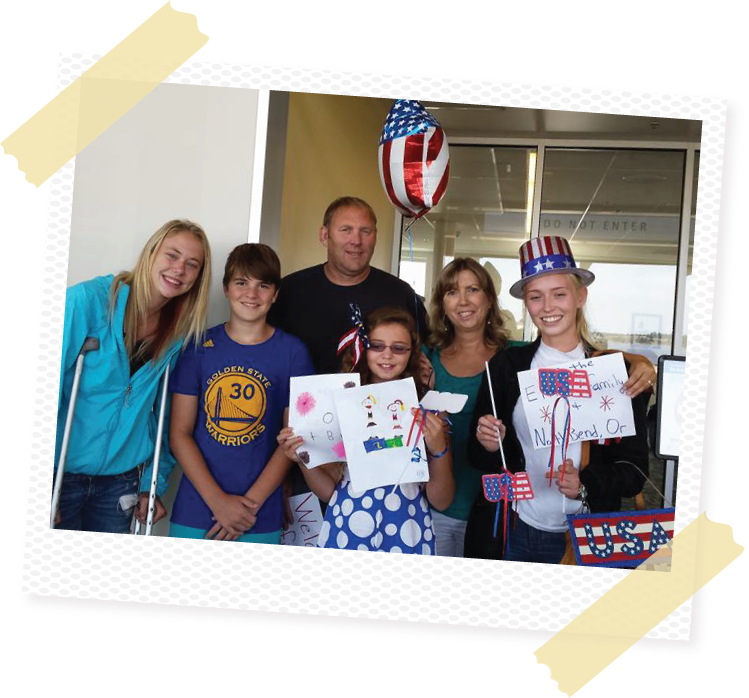Many exchange students say one of their top reasons for spending a year in the U.S. is to gain fluency in English. Being bilingual often opens doors to new educational and vocational opportunities, as well as providing ease of travel and friendships.
 Learning a new language can be challenging, and gaining fluency even harder, but it’s not impossible. On the contrary, being an exchange student provides the ideal setting to gain fluency in a relatively short period of time. Living with a host family, attending school, and making friends in the host culture provide exchange students complete immersion into the language, making it quite doable to become fluent in a matter of months.
Learning a new language can be challenging, and gaining fluency even harder, but it’s not impossible. On the contrary, being an exchange student provides the ideal setting to gain fluency in a relatively short period of time. Living with a host family, attending school, and making friends in the host culture provide exchange students complete immersion into the language, making it quite doable to become fluent in a matter of months.
While some exchange students step off the plane nearly fluent, others have a way to go before they can function well in English. Students who apply themselves to language learning should be comfortable with general conversation in 1-2 months and quite fluent by the end of the school year. Improving English is very important as it makes every other aspect of exchange easier including host family relationships, making friends, and fully participating in school and community activities.
Here are eight things students can do to reach their goal of fluency faster:
 1. Talk, talk, talk. This is the #1 best way to improve your English. Talk with your host family, classmates, teachers, and anyone you meet. Don’t worry too much about making mistakes. Do the best you can and your English will naturally improve. Conversation will build your vocabulary and improve comprehension like nothing else can.
1. Talk, talk, talk. This is the #1 best way to improve your English. Talk with your host family, classmates, teachers, and anyone you meet. Don’t worry too much about making mistakes. Do the best you can and your English will naturally improve. Conversation will build your vocabulary and improve comprehension like nothing else can.
2. Narrate your days. Talk about what you are doing, and turn it into conversation--even if it makes you feel silly. This will grow your vocabulary.
I’m putting on my red shoes today. My red shoes are more comfortable than my blue shoes.
I’m helping my host mom do the dishes. Where should I put the plates? That dinner was very delicious. Is the recipe hard to make?
I’m taking the dog for a walk. How old is the dog? Why did you name him Francisco?
 3. English only. The more your brain is going back and forth between English and your native language, the longer it will take to master English. Strictly limit all communication in your native language including speaking, email, Facebook, texting, movies, music, etc. The goal is total English immersion.
3. English only. The more your brain is going back and forth between English and your native language, the longer it will take to master English. Strictly limit all communication in your native language including speaking, email, Facebook, texting, movies, music, etc. The goal is total English immersion.
4. Use subtitles. Watch tv and movies in English and turn on the subtitles in English. This will help you track speech that is too fast for your ear to catch. Over time, this will build your vocabulary and help your ear learn to understand English at full speed.
5. Watch kids’ shows. Children’s tv shows are designed for language learning and vocabulary building. The characters tend to talk more slowly and clearly, and they include lots of context for words a child might not understand. Watching kids' tv will help you with grammar, sentence structure, vocabulary, and comprehension.
 6. Hang out with kids. Children are the best language teachers! They speak slowly, use simple words, have lots of patience, and will find it fun to be your English teacher. If you have young host siblings, spend lots of time talking with them. If there are no young kids at home, consider volunteering at an elementary school or a children’s program in the community. Together you can read, play, go for a walk, bake cookies—pretty much anything, as long as you’re talking to each other.
6. Hang out with kids. Children are the best language teachers! They speak slowly, use simple words, have lots of patience, and will find it fun to be your English teacher. If you have young host siblings, spend lots of time talking with them. If there are no young kids at home, consider volunteering at an elementary school or a children’s program in the community. Together you can read, play, go for a walk, bake cookies—pretty much anything, as long as you’re talking to each other.
7. Ask for help. The less English you know, the more often you should be saying "How do you say….." It’s okay to ask people to repeat themselves or to talk more slowly. Most people will be happy to help you, and will encourage you in your journey to fluency.
8. Learn fun phrases. Even before you are ready for deep conversations, you can build friendships through your enthusiasm for speaking English and a touch of humor. Learn fun phrases with your host family, including the correct context for saying them, and look for opportunities to say things like:
My dogs are really barking today…
That was easy as pie. . .
Looks like it’s back to the drawing board. . .
What a bummer!
Fluency doesn't happen overnight, but it will happen if you are diligent, persistent, and patient. You can build friendships and language skills at the same time and have lots of fun doing it!
There are many things host families can do to help and encourage their student as they pursue fluency in English. Click the image below to download this free tip sheet on Helping Your Exchange Student Become Fluent.



